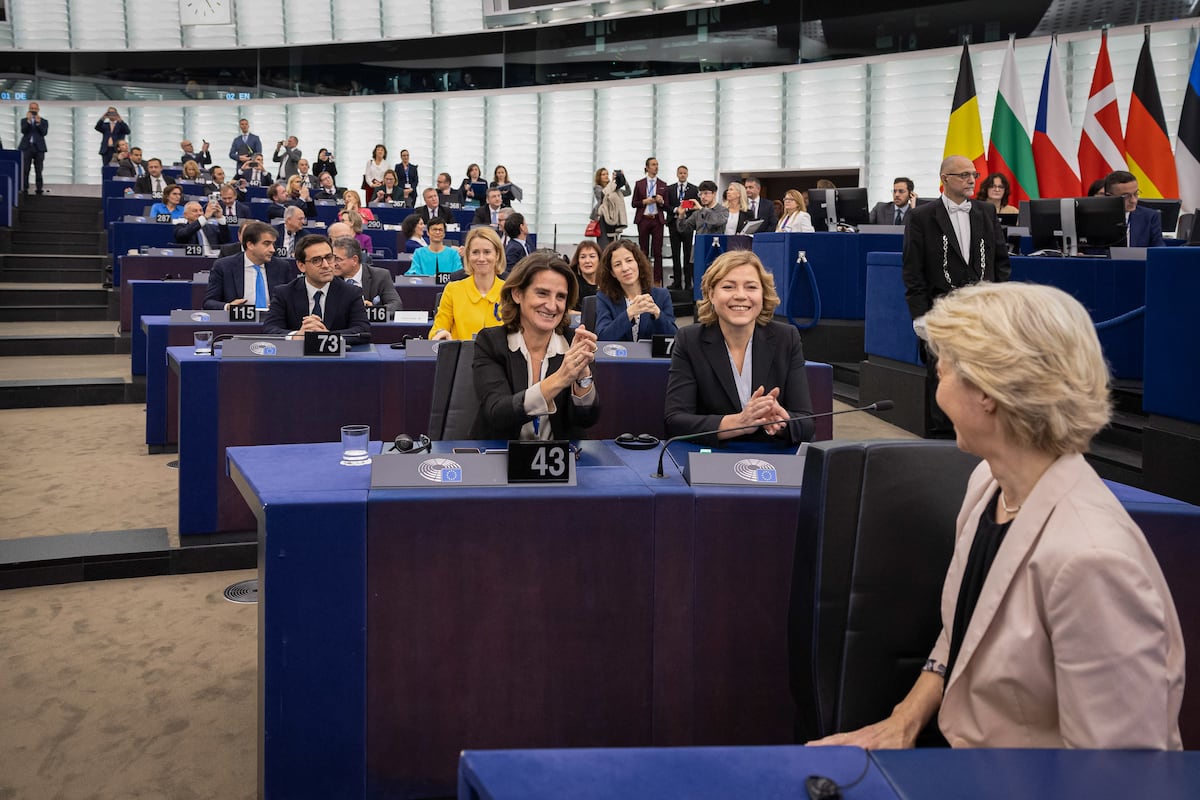In 2016, Adam Ellis published the webcomic Shhhon Facebook. You have seen it hundreds of times on the Internet. The comic presents a character, one of those who believe they are intellectually superior because they do not succumb to the lesser pleasure of football, bothering another with a series of offensive questions. Next, the poor guy who is just trying to watch a game from his couch, closes the annoying guy’s mouth with two fingers. “Shhh,” he whispers. “Let people enjoy things,” he adds. He who is enjoying something does not need the one who rejects him to come and give him trouble.
We have to do something with the autocrats of enjoyment, with the Celebration Police. Two weekends ago, social networks were filled with messages disapproving that the Celta players were going to celebrate the tie against Barça with the stands in the background and as a scoreboard, after a memorable comeback in the last minutes of the match: “Look at them, “Poor hillbillies, celebrating a draw as if it were the Champions League.” Agents of celebration, Gestapo AntiDeleite, typifiers of enjoyment: let the fans enjoy their moments of celebration as they want.
Only football fans can understand the absurd and irrational passion that it generates, but only fans of humble, medium-sized, small, non-winning clubs – put whatever adjective you consider – can understand what it means to celebrate when we live in a dimension in which little or nothing is celebrated. We grew up in stadiums with leaks and columns that prevent us from seeing plays, stands with blind spots, moats, walls, concrete that scratches the soul. We have survived agonizing journeys in the second or lower categories. We have spent the last few days of the league hugging defibrillators. We have gone to Treasury offices to try to reduce taxes on attendance at sleepy, lethal, terrifying matches. We have lived with signings of players so bizarre and unknown that they did not even appear on Google. We have witnessed how our clubs were bordering on ruin, the previous step to any disappearance. We have experienced first-hand how this ruin distanced our teams from the community that surrounds them. We have suffered and purged, let us enjoy in peace when things come our way.
The existence of the Celebrations Police is also linked to a growing trend towards the criminalization of fans. I suppose you have read or heard the story of Gorka, that five-year-old boy who could not enter the Montilivi stadium with his Espanyol shirt because he did not have a seat in the visiting stands and the regulations prohibit him from wearing the colors of the visiting team in other stands. if it is a high risk match. In general, the strict measures surrounding football allow decent fans to watch games safely, but it often feels like disproportionality rules and that confrontations are created by trying to control situations that do not directly exist, such as danger of a five-year-old child wearing his team’s shirt in a rival stand.
On the surface, football is a church open to all those who are willing to believe, but we faithful fans are constantly questioned and degraded. I think it is worth remembering that many fans are nothing more than that: people who love colors and want to enjoy them without Homeric and absurd restrictions. It may be a vulgar enthusiasm, but it is our enthusiasm.








